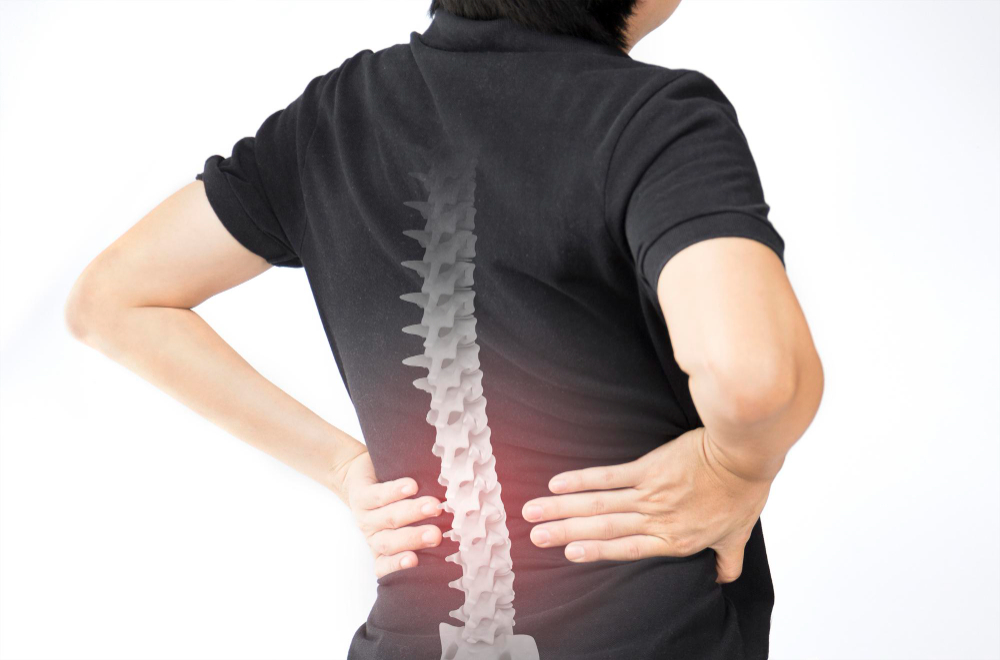
Dealing with persistent back pain or sciatica caused by a herniated disc can be challenging. For many, a discectomy—a surgical procedure to remove the damaged portion of a herniated disc—is a pathway to relief and restored mobility. However, understanding the recovery process is essential for achieving the best possible outcome.
If you’re preparing for or considering a discectomy, this blog will guide you through what you can expect during recovery and provide tips to ensure a smooth healing process.
Whether you’re looking for first-hand insights or advice from an experienced orthopedic surgeon in Orange City, FL, you've come to the right place.
Understanding the Discectomy Procedure
Before we jump into the recovery process, it’s crucial to understand what a discectomy is. A discectomy is a minimally invasive surgery in which an orthopedic surgeon removes the part of a herniated disc that is pressing on a nerve.
This procedure is highly effective for alleviating pain, weakness, and numbness in the legs or arms caused by nerve compression, especially for conditions like sciatica. Thanks to advancements in surgical techniques, most modern discectomies are performed using small incisions and specialized tools, reducing recovery times and post-operative discomfort.
What to Expect Immediately After Surgery
The First 24 Hours
The recovery process begins as soon as surgery is complete. Since a discectomy is often performed as an outpatient procedure, many patients return home the same day. However, in some cases, an overnight hospital stay may be required for monitoring.
Here’s what you can typically expect during the first day post-surgery:
- Pain and soreness at the surgical site are normal and can be managed with prescribed medications.
- Limited mobility, as you may feel stiff or uncomfortable, particularly in the area of the procedure.
- Resting and monitoring, allowing your body to recover from both the surgery and anesthesia.
Tips for Day One:
- Follow your orthopedic surgeon's discharge instructions carefully.
- Arrange for someone to drive you home and assist you during the first 24 hours.
- Start walking short distances with assistance to maintain healthy blood flow.
The First Week of Recovery
During the initial week post-surgery, your focus should be on rest, controlled activity, and pain management. While you may notice some immediate relief from symptoms like radiating leg pain, it’s essential to give your body time to adjust.
- Pain Management: Expect mild to moderate discomfort around the incision site. Your surgeon may prescribe medications or suggest over-the-counter pain relievers to help manage this.
- Mobility: Gradually increase your activity level by walking short distances each day. Avoid strenuous activities or bending and twisting motions.
- Incision Care: Keep the incision clean and dry to reduce the risk of infection. Your surgeon will provide specific instructions for cleaning and dressing the wound.
Tips for Week One:
- Use a supportive chair or recliner at home to minimize strain on your back while sitting.
- Perform gentle, surgeon-approved stretches to maintain flexibility.
- Avoid lifting heavy objects or engaging in demanding physical tasks.
Weeks 2 to 6 of Recovery
The next phase of recovery is all about regaining mobility and rebuilding strength. By this point, most patients notice significant reductions in pain and improved mobility. However, it’s essential to avoid pushing yourself too hard to avoid setbacks.
Key Focus Areas:
- Physical Therapy: Your orthopedic surgeon may recommend working with a physical therapist to assist with targeted exercises aimed at strengthening your core and stabilizing your spine.
- Progressive Activity: Gradually reintroduce light activities into your routine, such as gentle walks or household chores, while avoiding repetitive twisting or lifting motions.
- Listening to Your Body: Pay attention to your symptoms. Stop any activity if you experience pain or discomfort and communicate with your surgeon about concerns.
Lifestyle Adjustments:
- Avoid prolonged periods of sitting—even at work. Stand and stretch frequently if your occupation requires desk work.
- Follow any dietary recommendations provided to promote healing, such as incorporating anti-inflammatory foods.
Full Recovery (6 Weeks and Beyond)
By the six-week mark, most patients feel well enough to return to their normal routine, including work and recreational activities. However, if your job involves heavy lifting or strenuous physical labor, your orthopedic surgeon may recommend waiting a bit longer before returning.
What Improvements Can You Expect?
- Persistent symptoms caused by nerve compression, such as tingling or weakness, often continue improving over weeks or months.
- You’ll likely regain flexibility and strength as you engage in more physical activity and continue physical therapy.
- Many patients experience a significant improvement in their overall quality of life.
Long-Term Care and Maintenance
Even after full recovery, taking care of your spine is critical. Here are some key steps to maintain your results:
- Maintain a healthy weight to reduce strain on your spine.
- Incorporate core-strengthening exercises into your routine.
- Use proper ergonomics at work and home, including supportive chairs and proper lifting techniques.
When to Call a Doctor
While most patients recover without complications, it’s essential to monitor for any warning signs that require immediate medical attention, including:
- Redness, swelling, or discharge from the incision site (signs of infection).
- Fever or chills that may indicate an infection.
- Persistent or worsening pain that is not alleviated with medication.
- Leg weakness or loss of bowel or bladder function.
Contact your orthopedic surgeon right away if you notice any of the above symptoms.
Why Partner with Central Florida Bone & Joint Institute?
At Central Florida Bone & Joint Institute in Orange City, FL, we know that expert care doesn’t stop after surgery. Our team is dedicated to guiding you through every step of the recovery process. From personalized treatment plans to physical therapy recommendations, we’re here to ensure you regain your mobility and quality of life.
If you're looking for a trusted orthopedic surgeon in Orange City, FL, contact us today to learn more about your options or schedule a consultation.